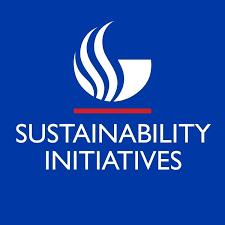

CAMPUS SUSTAINABILITY GRANTS


ATLANTA HERPETOLOGY CLUB
Cassandra Waldron
The Atlanta Herpetology Club raises public awareness about the significance of native herpetological species, their habitats, and their role within local ecosystems. This work leads to a long-term understanding of the need for sustainable practices such as conservation and emissions reductions.
Throughout the semester, the club hosted guest speakers, meetings, workshops, field expeditions, on-site surveys, and tours of Zoo Atlanta’s Reptile House. The club used its grant funds to fund their survey camping trip, guest speakers, tours, and miscellaneous materials and supplies.
The Atlanta Herpetology Club at Georgia State University has over 100 active members.
Amount awarded: $5,000
Sustainable Development Goals
SDG 15: Life on Land
Research and Innovation
Through collaborations with the Georgia Reptile Society and Zoo Atlanta, students actively engage in herpetological research, including species identification and surveys.
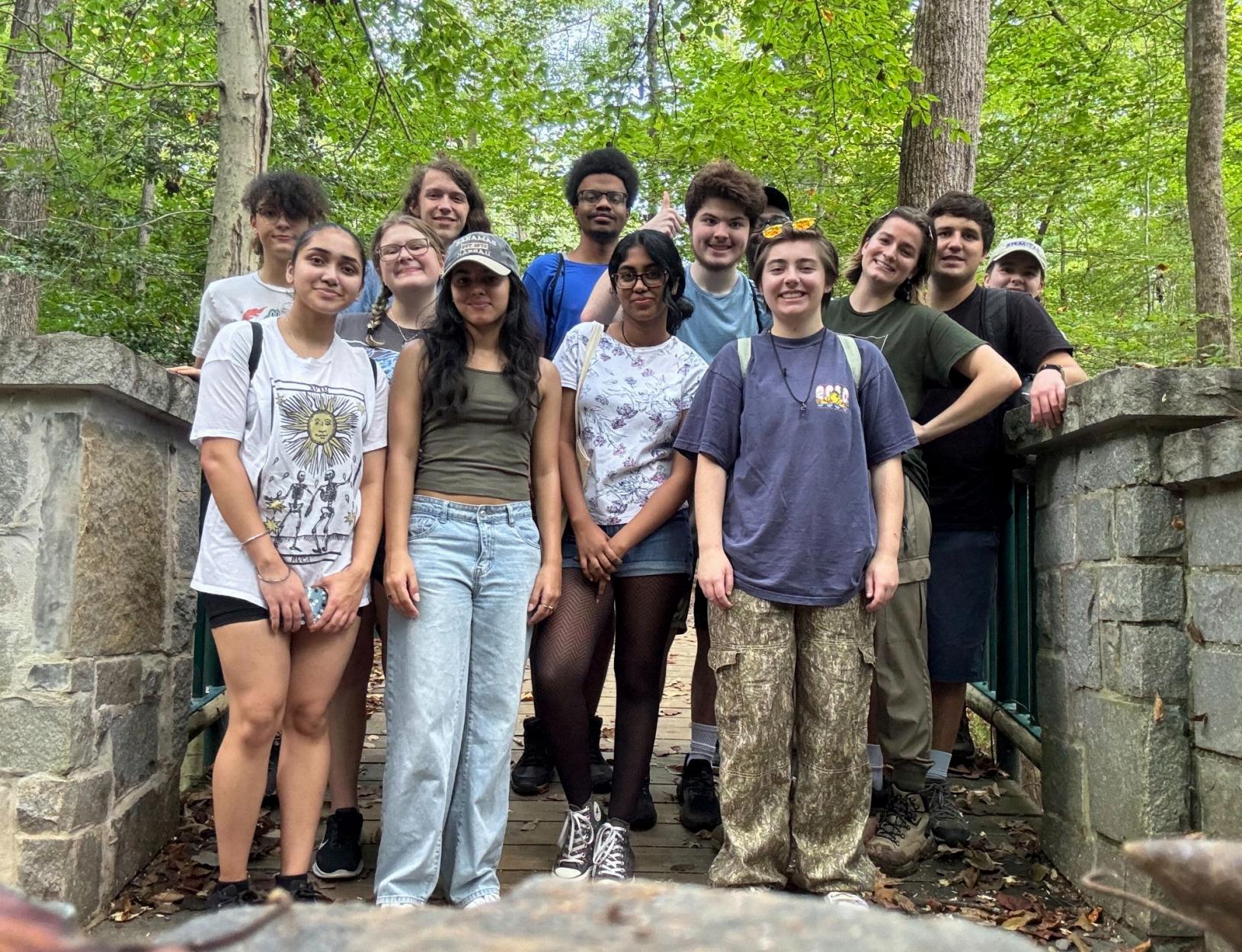
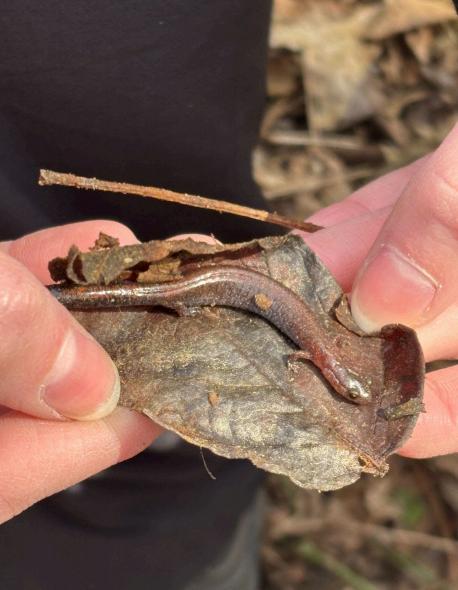
CONSERVING WATER
Dr. Thomas Robilotto & Dr. David Connors Amount awarded: $3,838
University labs use a significant amount of water as part of research and classroom learning. For example, a typical GSU Chem 2100 lab course uses 18,358 liters of water in just one hour.
To improve the sustainability of these lab courses, Dr. David Connors and Dr. Thomas Robilotto designed and piloted a recirculating water pump apparatus that cuts the water usage in the lab for certain experiments by more than 99%. Using the Campus Sustainability Grant funds, the faculty, alongside student assistant Ms. Golden Uzoma, built and tested the apparatus, and validated that the pumps worked for typical experiments.
Based on the success of the pilot water conservation pump, the team then moved forward with deploying 60 water-saving pumps across the entire lab. They estimate that using these water-saving pumps will reduce water usage by three million liters per year in the Chem 2100 laboratory alone.
Going forward, each student in Chem 2100 will use this new water pump set-up, enabling them to complete lab experiments using just one liter of water per person per day.
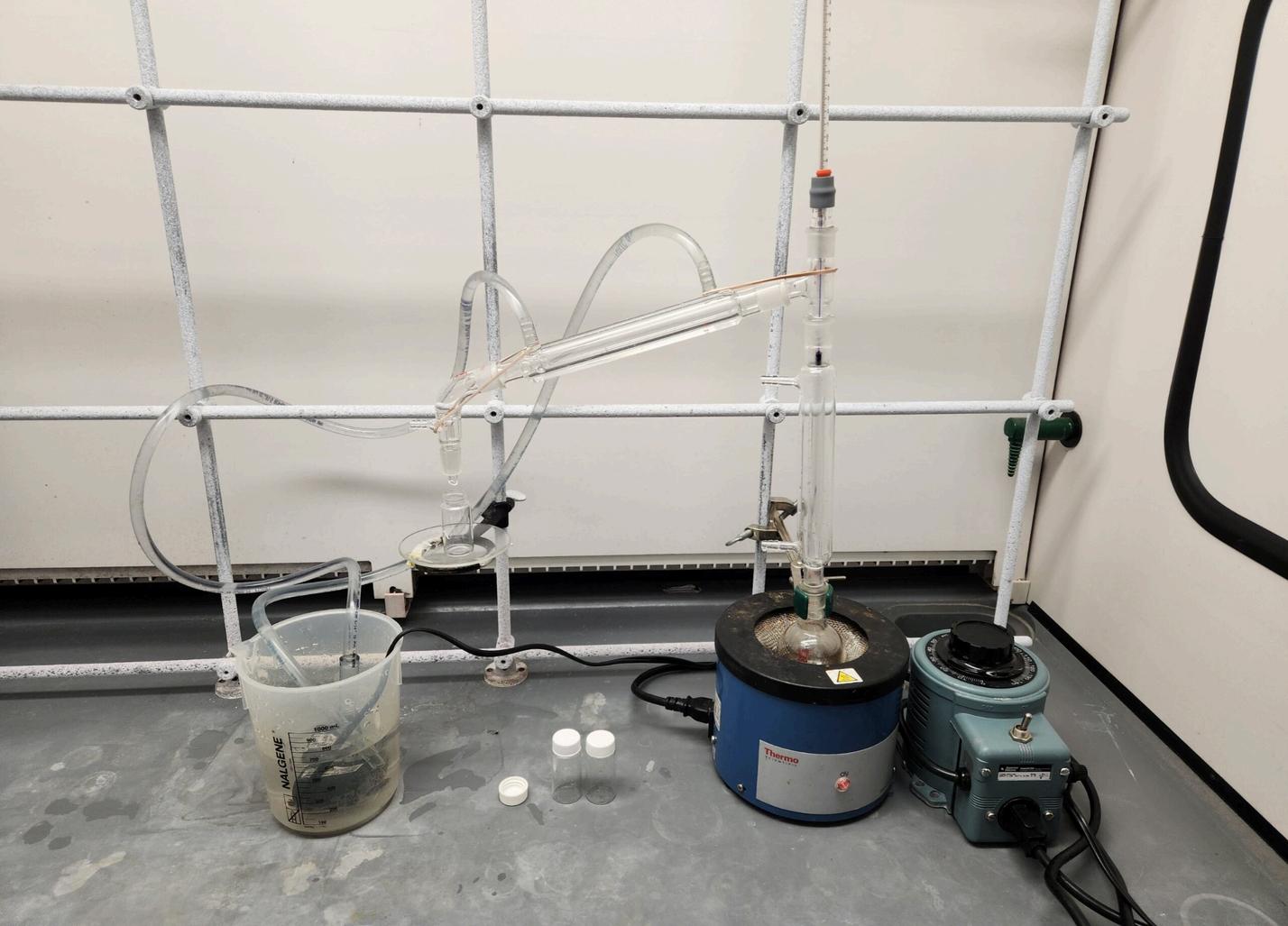
Sustainable Development Goals
SDG 12: Responsible Consumption & Production
Research and Innovation
The water-saving pumps were created by Dr. David Connors and Dr. Thomas Robilotto, as well as an undergraduate student Golden Uzoma. Golden performed research to determine if the current organic experiments could be run with the new water pump without a reduction in efficiency, reproducibility, or data quality.
Student Success
Golden Uzoma gained laboratory and research experience in statistical data collection, distillation and refluxing of binary liquids, and laboratory instrument design. The research was presented at the 2025 Georgia State Undergraduate Research Conference (GSURC).
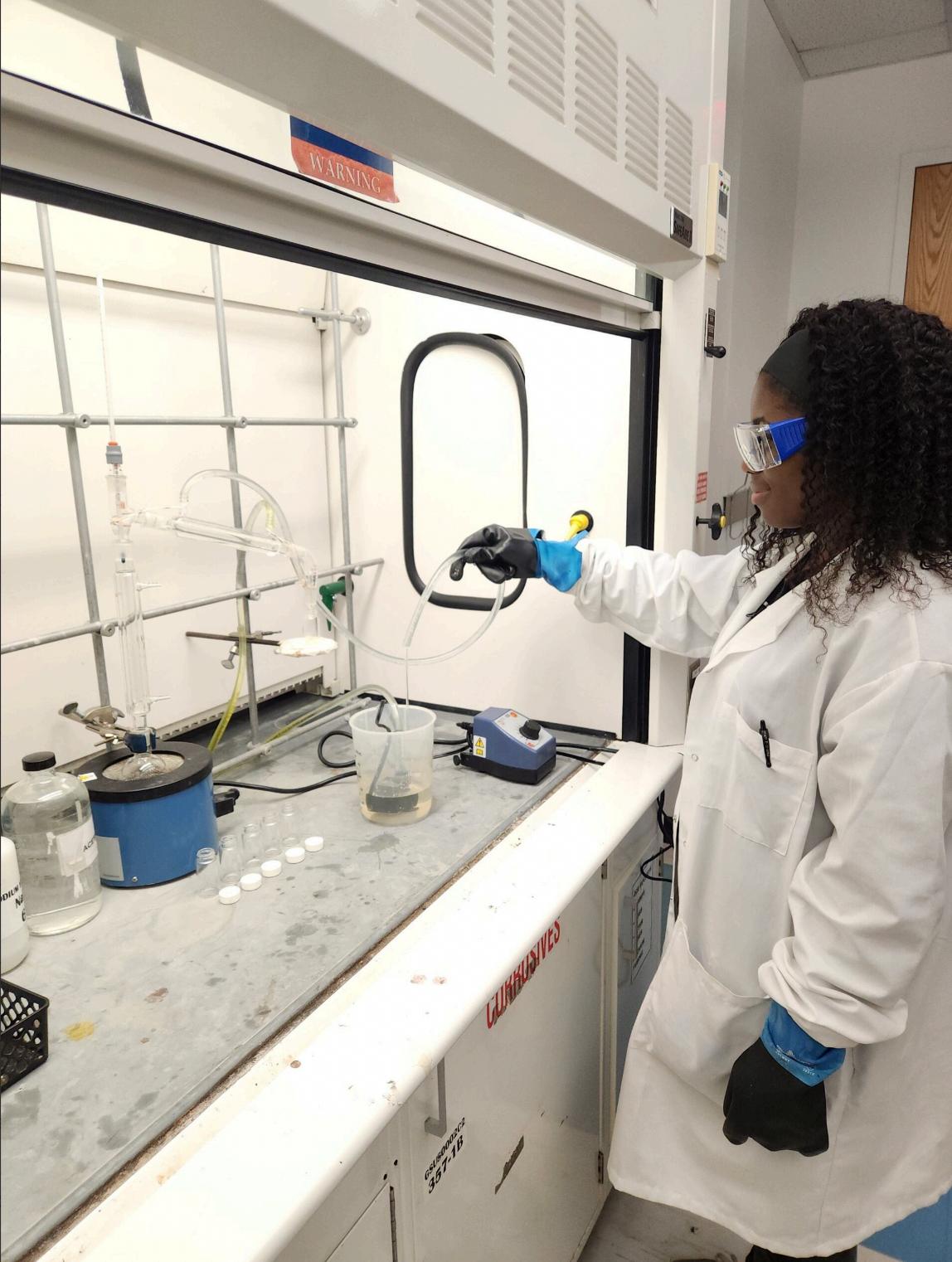
GRADUATE RESEARCH CONFERENCE
FOR RESEARCH, SCHOLARSHIP, AND CREATIVE ACTIVITY
Jennifer Wilson Amount awarded: $700

The Graduate Conference for Research, Scholarship, and Creative Activity is a yearly event held by the Graduate School to allow graduate students to display their work and research.
The theme for the third annual conference was "Scholarship for a Better World: Empowering Change, Inspiring Action.”
The top seven winning sustainability research projects were given cash prizes of $100 each.
2025 Sustainability Awards
Reducing Household Waste Through Digital Community Engagement: The Cartsmall Marketplace Study by Jehoshaphat Abaya
Sex Differences in the Association of Perfluoroalkyl Acids Exposure with Cognitive Performance in Adults: Highlights from NHANES 2011-2014 by Segun Aderibigbe
Systematic Approach to Investigating
Industrial Stormwater Permits in the South River Watershed by Hamia Akter
The Energetics of Ion Sorption onto Biochars for Soil Remediation by Isaac Gemedi

Impact of Blueberry Consumption on Adipocyte Apoptosis in Mice Fed a Western Diet by Cameron McCarthy
Sustainable Solutions to Plastic and Petroleum Hydrocarbon Pollution: Anaerobic Bacteria for the Biodegradation of PET Microplastics and Aromatic Hydrocarbons by Cayden Samuels Driving Change Through Geothermal Innovation: How MoriaEnergy Shapes the Future of Renewable Power by Steven Stewart
Research and Innovation
The conference gives graduate students the opportunity to showcase their research. They may present their research through artist talks, artistic and creative presentations, film, musical performances, oral presentations, or poster presentations.
College to Career
The conference equips graduate students for future careers in their field by providing opportunities to conduct research with professionals, develop problem-solving abilities, and enhance public speaking skills.
GSURC SUSTAINABILITLITY PRIZES
Jennifer Wilson

GSURC, the Georgia State Undergraduate Research Conference, is an interdisciplinary undergraduate research conference that highlights and recognizes the research taking place across campus. Each year, undergraduate students are invited to submit their scholarly and creative projects as posters, oral presentations, and artistic or creative presentations.
The top eight winning sustainability research projects were given sustainability swag bags full of re:loom products and were invited to the annual Green Gala.
GSURC 2025 Sustainability Awards
Is Formula 1 ESG Actually Sustainable by Armin Amina
Enhanced Production of Bioplastic Poly-(3 hydroxybutyrate) Using a Co-culture System of Escherichia coli andChlamydomonas reinhardtii by John Biggs and iGEM team
Drowning on Air by Anaya Martin
How Sustainable is Sustainable Fashion by Maddison McCarley
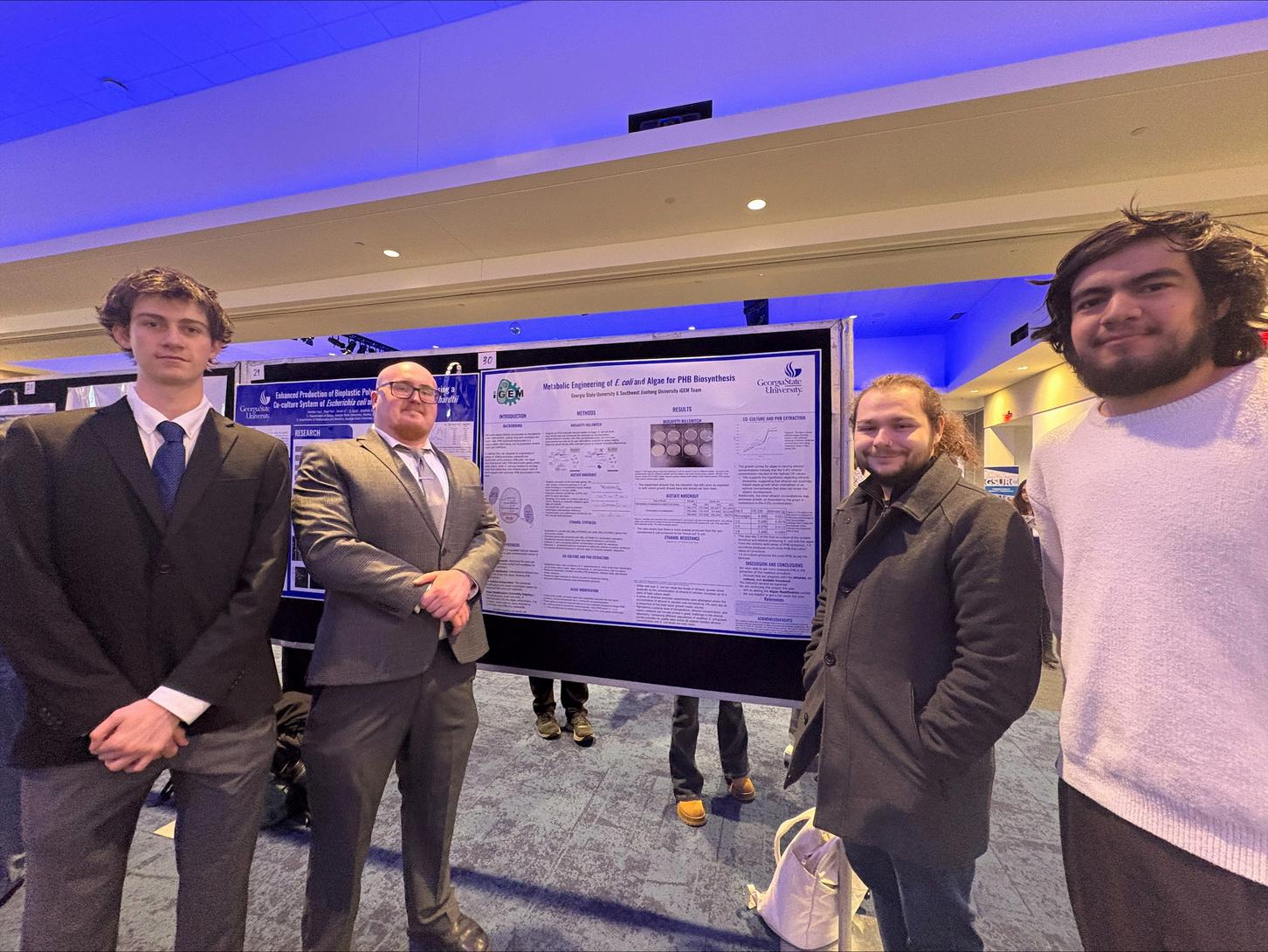
Raccoon Eyes: How Portion Size & Behavorial Interventions Reduce Dining Hall Food Waste by Erin Murphy & Sarah Salazar Effects of Ethanol on Biomass and PHB Production in Algae and E. coli Co-cultures by Salem Mutata
Algi: Bio-Yarn Light Sculpture by Ione Shakur The Strain of Urban Development on Water Infrastructure: Analyzing Need for Combined Sewer System Reform in Atlanta, Georgia by Elle Shirah
Research and Innovation
GSURC gives students a platform and audience to showcase meaningful research they've conducted. The students also received great help and guidance from their faculty advisors and external industry professionals.
College to Career
Completing research alongside industry professionals and faculty advisors promotes college to career readiness by opening doorways for students to identify problems, data, and research necessary to solve problems.
LEAFY GREEN MACHINE
Davis Roberts
The Leafy Green Machine, also known as the freight farm, is a year-long hydroponic farm. Hydroponics is a type of horticulture where plants are grown in a water-based nutrient solution instead of soil.
Produce grown includes Swiss chard, romaine, collards, kale, and mustard greens.
Produce grown at the farm is used at the dining halls and Panther’s Pantry. This year, there was an 88% increase in the amount harvested compared to last year, with 422 lbs of greens produced this year and 225 lbs produced in FY24.
The Leafy Green Machine has provided tours and lectures educating participants on the hydroponic process, the differences between conventional and hydroponic farming, and the sustainability initiatives taking place on GSU’s campuses.
The grant funds were used to pay for automated farm software, student staffing, and garden materials.
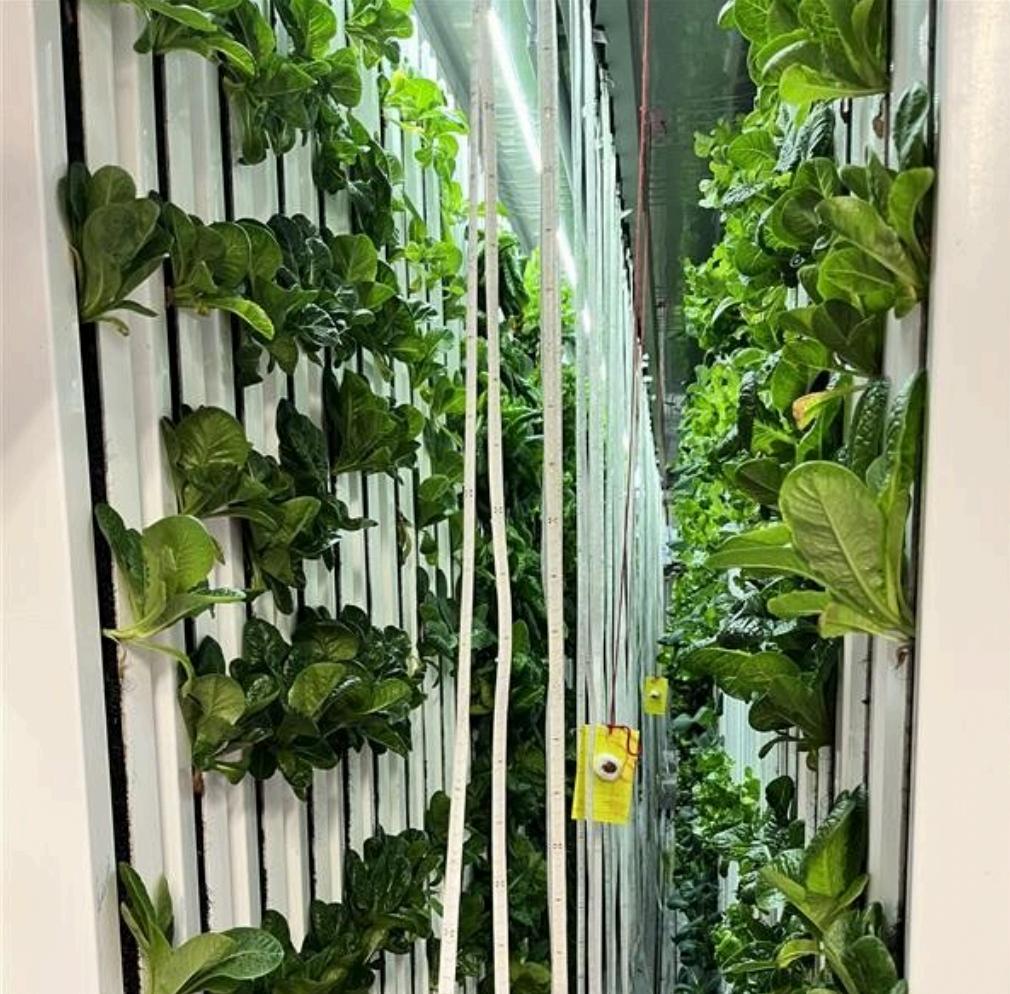
Amount awarded: $17,075
Sustainable Development Goals
SDG 2: Zero Hunger
SDG 12: Responsible Consumption and Production
Hydroponic farming produces less water waste, requires less space than industrial farming, and doesn't require soil, pesticides, or herbicides.
Research and Innovation
The freight farm collaborates with graduate assistants to complete research projects on the nutritional quality of the harvest.
College to Career
The farm provided out-of-classroom learning for students from various disciplines, including journalism, business, nutrition, chemistry, and geography. The farm also provided three job opportunities for students and two internship opportunities for graduate nutrition students.

JEFFREY G. MILLER NATIONAL ENVIRONMENTAL MOOT COURT COMPETITION
Aditya Krishnaswamy

The Jeffrey G. Miller National Environmental Moot Court Competition is a co-curricular activity where law students can practice legal research, oral skills, and writing skills. Individual moot court teams prepare a brief to argue in a hypothetical appellate case for either the petitioner or the respondent.
The grant funds were used to send the GSU Environmental Moot Court Team to New York to participate in the 2025 Jeffrey G. Miller National Environmental Law Moot Court Competition, the largest environmental moot court competition in the country. The funds paid for transportation, housing, and food.
The topic for 2025 involved the water transfers rule, attempting to balance the values of clean water, economic development, and environmental concerns. The legal challenge involved an existing water transfer that was taking water from a lake to a stream to increase waterflow for a local tubing company.
The members of the 2024-2025 GSU Environmental Moot Court Team are Kevin Daniels, Grace Singletary, and Aurum Naylor. Aditya Krishnaswamy was the team coach.
Amount awarded: $5,000
Sustainable Development Goals
SDG 6: Clean Water and Sanitation
SDG 16: Peace, Justice, and Strong Institutions
College to Career
Members of the moot court team were able to gain valuable out-of-classroom learning experience from engaging with peers from other universities and industry professionals in environmental law. This experience is also meaningful on students’ resumes for pursuing a career in environmental law.
Research and Innovation
To prepare for the competition, the students collectively spent 200 hours researching real case law and environmental regulation to write a brief and prepare arguments.
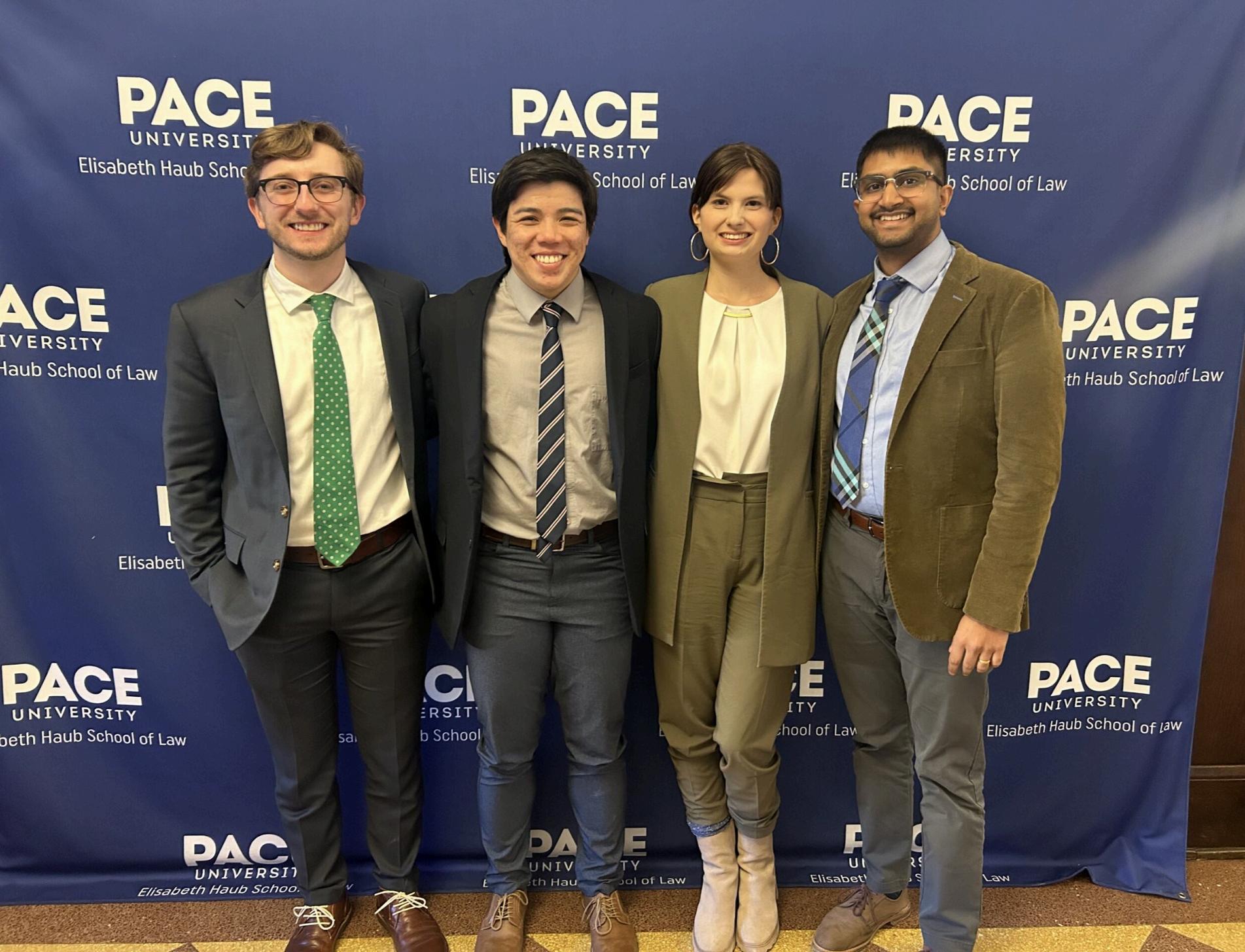
PANTHER DINING
OZZI
Amanda Schoff
$24,973
OZZI containers are reusable to-go food containers that allow meal-plan holders to take food outside of the dining halls. PantherDining first introduced OZZI containers to the dining halls in the fall of 2021.
OZZI containers help reduce the amount of single-use plastic and Styrofoam to-go boxes that would end up in the landfill and ensure students can access food at any given time.
PantherDining used the grant funds to purchase an additional 5,000 OZZI containers that are blue and have Pounce on the front.
Sustainable Development Goals
SDG 12: Responsible Consumption and Production
By using OZZI containers, the university is able to reduce their environmental footprint.

Fill it Forward
Suzanne Paltz
$7,495
This year, PantherDining elevated the impact of the OZZI containers by launching the Fill it Forward program. Each container is tagged with a Fill it Forward sticker, allowing students to scan every reuse through the app.
In FY25, 1,829 GSU students logged over 62,525 reuses, resulting in 1,900 lbs of plastic waste kept out of landfills.
Each time a student returns their container, Fill it Forward contributes $0.02 to global giving projects. This year’s project included reforestation and water access in the Andes and implementation of a school water system in Bangladesh that benefits over 650 students.
Sustainable Development Goals
SDG 12: Responsible Consumption and Production
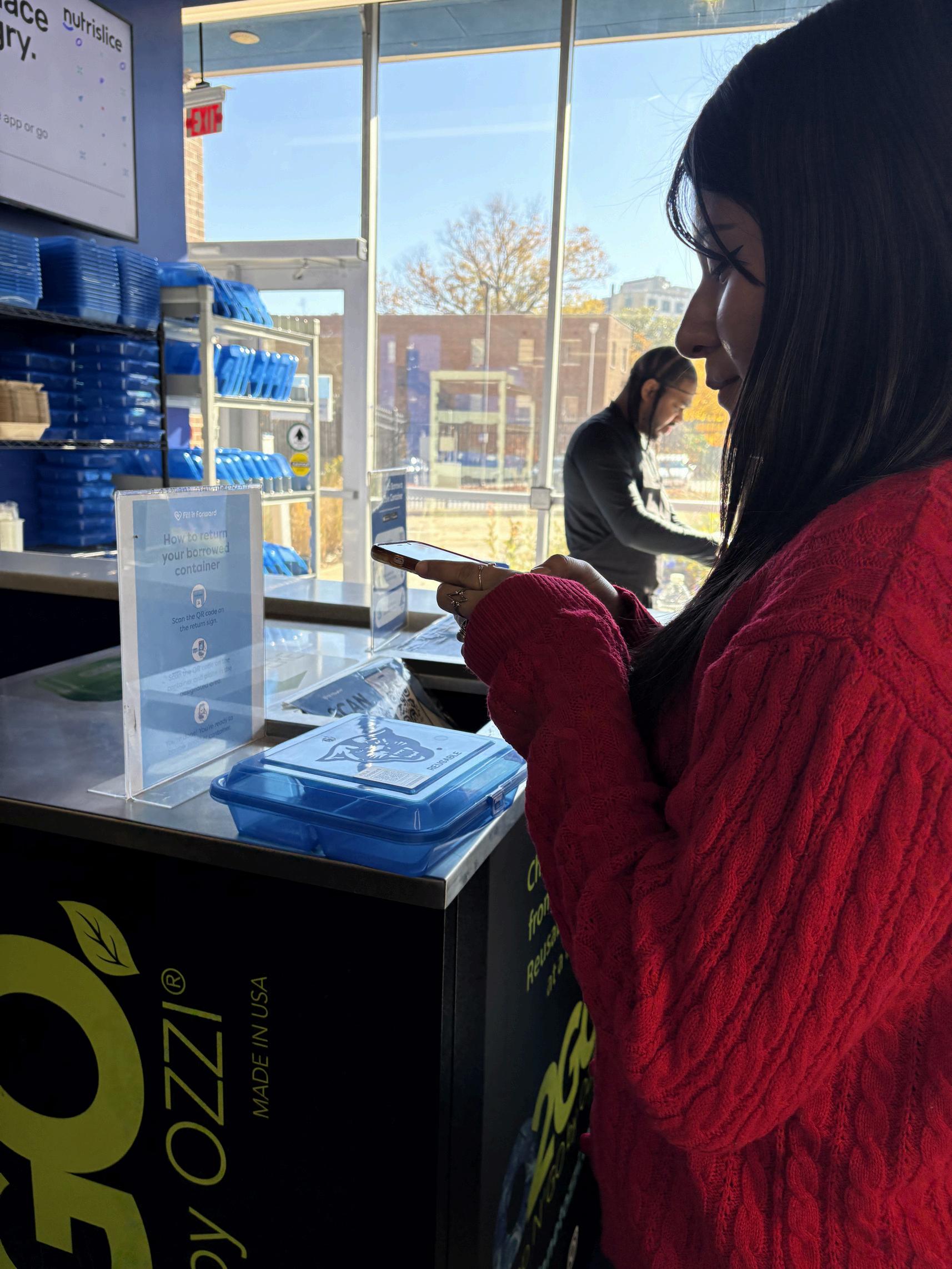
PANTHERSWAP
Lucero Mendez & Sarah Anderson
PantherSWAP is a student-run pop-up thrift store that supports sustainable fashion and creates an on-campus circular economy.
PantherSWAP was created by a student, Lucero Mendez, as a proposal for a class assignment. Lucero brought the idea to life through the grant program and runs it with the help of fellow intern Sarah Anderson.
Since its start in April 2024, PantherSwap has held 10 events, through which it has diverted 1,624 items (924.5 pounds) of clothing from landfills. They expanded their reach through partnerships with Depop, Georgia PIRG, the University Library, the Honors College, and the Resident Hall Association.
The grant funds were used for student stipends
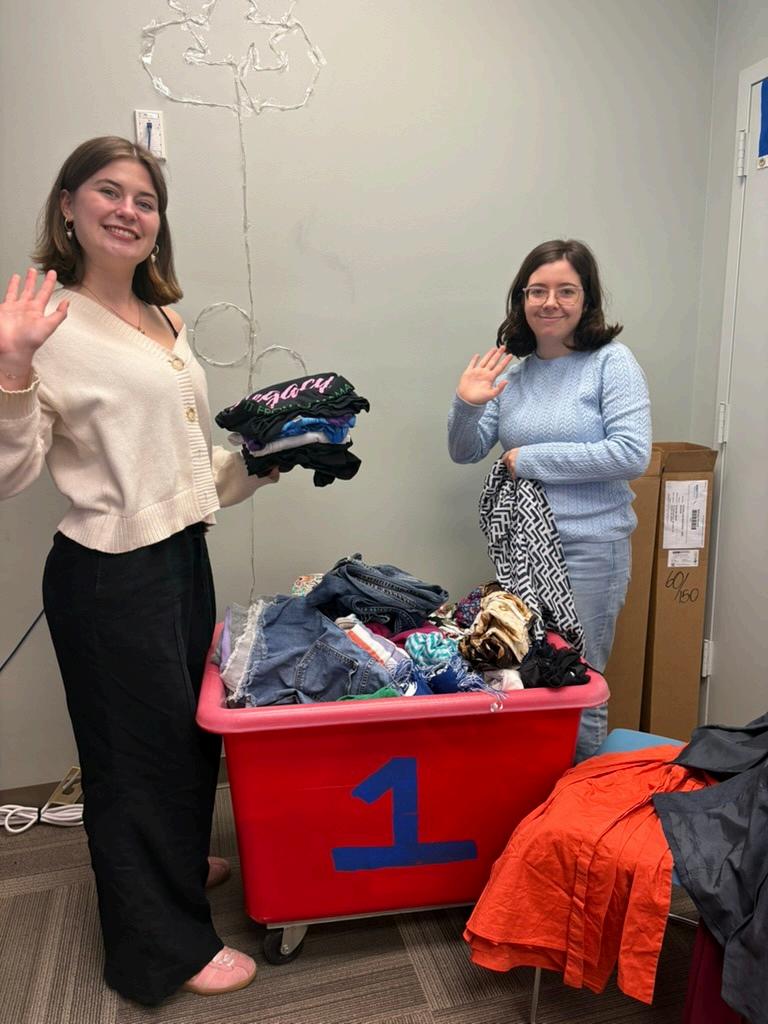
Amount awarded: $1,500
Sustainable Development Goals
SDG 11: Sustainable Cities & Communities
SDG 12: Responsible Consumption & Production
Identity and Placemaking
PantherSWAP builds a stronger community and identity within the university by providing a form of mutual aid between students, while bringing the inclusivity and joy of thrift culture to campus. This year, PantherSWAP held a Sustainable Fashion Show during Ethics Awareness Week.
Student Success
GSU’s Atlanta campus operates within a clothing desert, lacking affordable clothing options and necessitating off-campus trips. PantherSWAP especially benefits the 51% of students who receive Pell Grants due to financial aid.
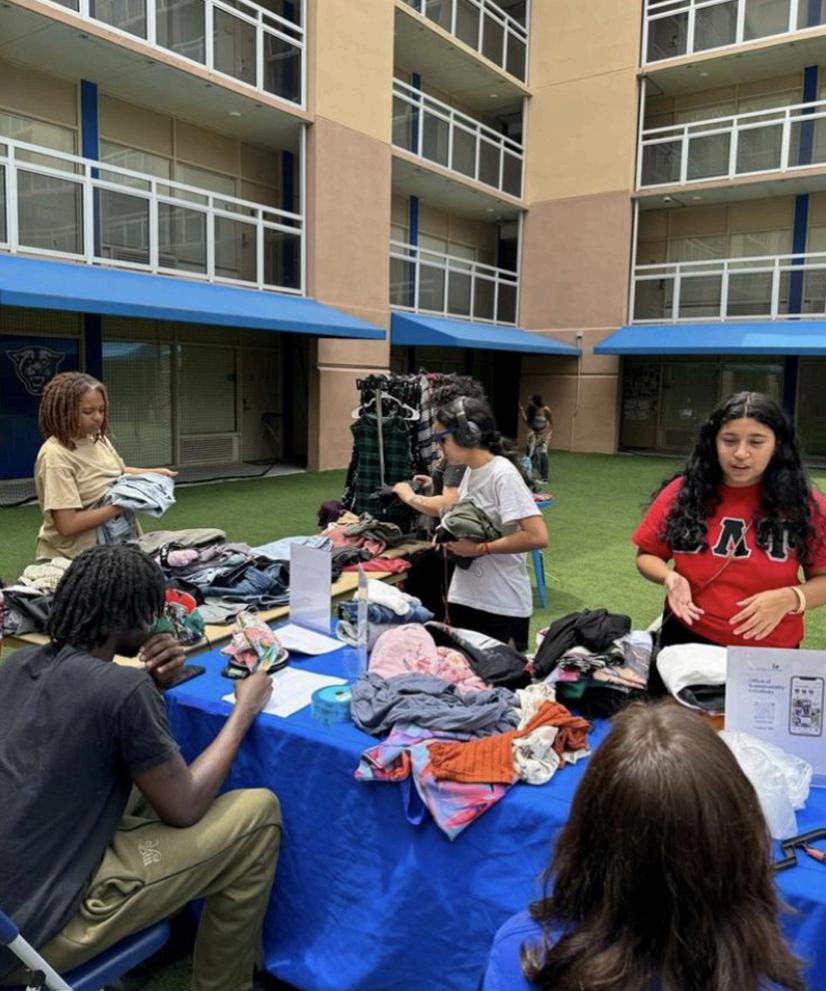
PEACE CLUB
Carrie Freeman
PEACE Club (People for the End of Animal Cruelty & Exploitation) is a student organization that focuses on plant-based eating, animal advocacy, social justice, and environmental justice. During the school semester, the PEACE Club hosted guest speakers from Georgia Voters Conservation and Apex Advocacy, held a vegan fashion photo shoot, and hosted hikes and picnics centered around veganism and intersectionality.
PEACE Club used its grant funds to purchase logo-branded stickers and buttons, informational handouts, and plant-based grocery items for their campus events.
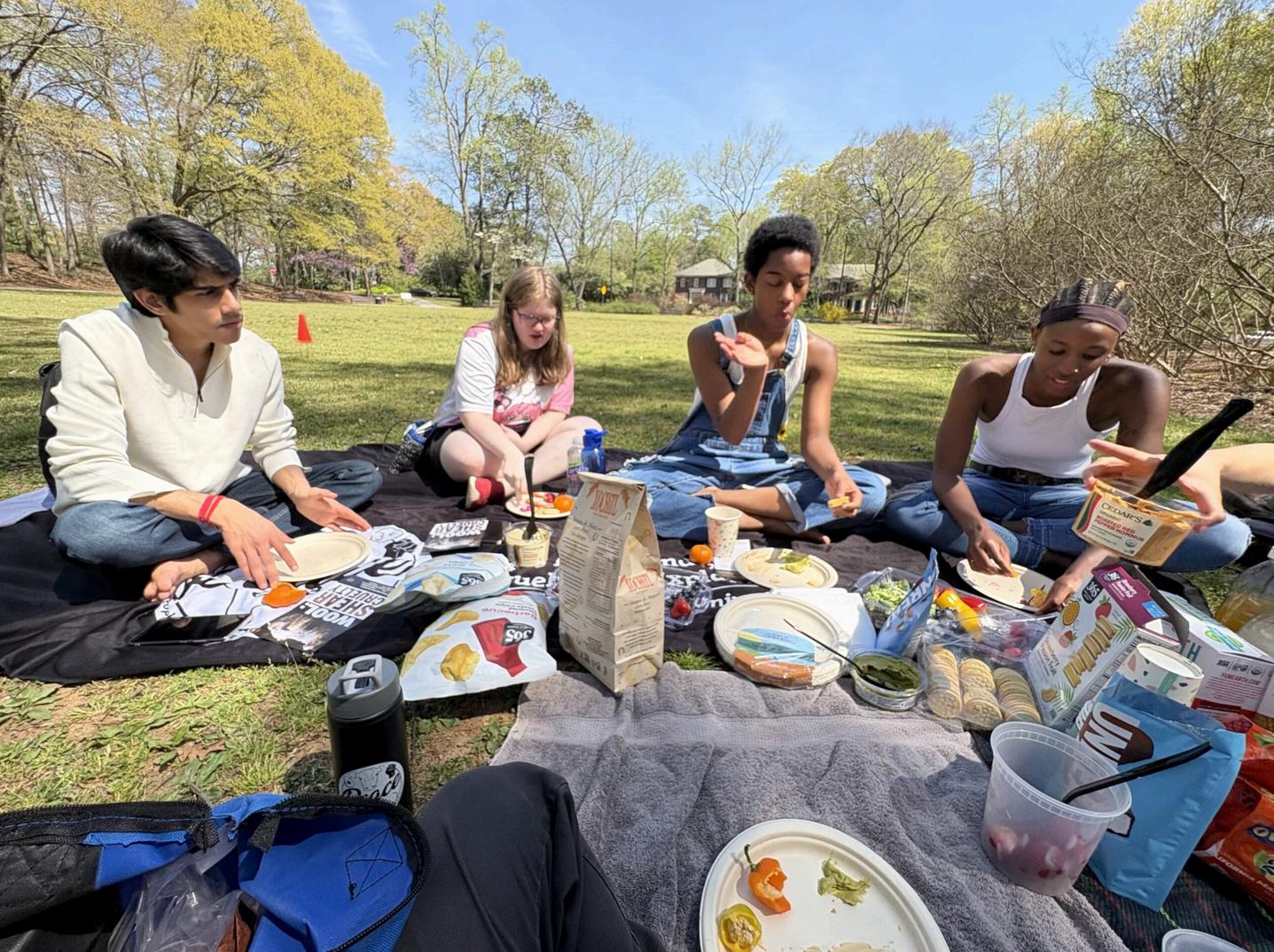
Identity & Placemaking
PEACE Club is the only vegan and animal rights advocacy group at Georgia State University. They create welcoming spaces for all students, uplift BIPOC voices in activism and encourage students to be involed in civic engagement.
Amount awarded: $1,750

Sustainable Development Goals
SDG 3: Good Health and Well-Being
SDG 12: Responsible Consumption and Production.
When planned properly, vegan diets provide all the nutrients needed for a healthy lifestyle and reduce the risk of different types of chronic diseases.
At events, the PEACE Club tries to be as sustainable as possible by using compostable plates, napkins, and utensils, and composting them along with food scraps.
Drawdown Georgia
Food and Agriculture: PEACE Club provides plantbased food at events and promotes plant-based diets.
College to Career
PEACE Club educates students on eco and animal issues within the context of social justice so students can be more thoughtful and informed when communicating these issues in the future and planning their careers.
RACCOON EYES
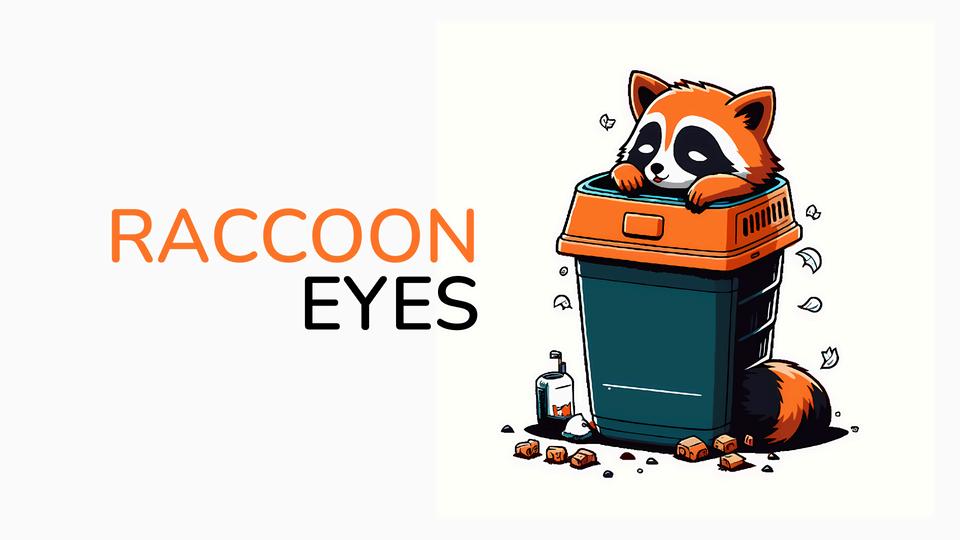
Erin Murphy, Sarah Salazar
PantherDining deployed Raccoon Eyes, a food waste management system that uses AI technology to scan food waste in a continuous food waste audit. The dining halls use data from the tool and feedback from students to make effective changes to reduce food waste, whether it be refining recipes or changing portion sizes. In FY25, Raccoon Eyes expanded from Piedmont Central into Piedmont North and Patton Hall dining halls.
Success from this program resulted in ABC News featuring Raccoon Eyes at GSU in a nationally aired segment about reducing food waste and NACUFS awarding PantherDining a Gold award in Waste Reduction and the Grand Prize in Sustainability.
Since Fall 2024, food waste decreased by 29%, and dining hall sentiments increased by 12%.
Amount awarded: $15,000
Sustainable Development Goals
SDG 9: Industry, Innovation and Infrastructure
SDG 12: Responsible Consumption and Production
Research and Innovation
Student interns Erin Murphy and Sarah Salazar presented research at the 2025 Georgia State Undergraduate Research Conference, winning a sustainability award for their “See the Waste” events and informational interventions in the dining halls. The events helped document and further decrease food waste through changes in student behavior.
College to Career
Raccoon Eyes is a student-driven project that occurred as part of a food and sustainabilityfocused internship program. The project promoted college to career readiness by giving the interns the responsibility of researching, proposing, implementing, and overseeing Raccoon Eyes at the dining halls.


SOUTHEASTERN STUDENT SUSTAINABILITY CONFERENCE
Jennifer Wilson
Sustainability Initiatives brought ten interns and two staff members to the 2025 Southeastern Student Sustainability Conference (SSSC) at Duke University. The SSSC brings together students engaged in campus-based climate and sustainability initiatives from around the region. The event aims to facilitate knowledge sharing, connection, and community building to address common challenges and opportunities on campuses.
Participants had the opportunity to learn about campus sustainable topics such as food pantries, campus farms, climate grief, green certifications, waste reduction, and methods on engaging faculty.
Some students attended presentations such as “Forest Patches and Their Benefits on College Campuses”, “Sustainability in Athletics”, “Buen Vivir: Thinking Beyond Sustainability”, and “Sustainable Fashion as a Tool for Student Engagement”.

Amount awarded: $4,500
Sustainable Development Goals
SDG 4: Quality Education
SDG 11: Sustainable Cities and Communities
College to Career
This conference allowed students to network with other future sustainability professionals from the Southeast. Students came together in workshops to address campus issues and explore opportunities. Students attended lectures each day on topics related to campus sustainability and career and personal growth. Students who attended stated they gained new perspectives on campus initiatives that they can bring back to future jobs.

SUSTAINABILITY FELLOWSHIP PROGRAM
Christy Visaggi
The Sustainability Fellowship Program (SFP) supports internships for undergraduate students across all disciplines at GSU and reduces the financial burden associated with career preparation opportunities in the local, regional, and national sustainability sectors. The program allows students to pursue work experiences where they will apply and develop their analytical, research, and communication skills in a professional setting.
The SFP was able to support 28 students in FY25. Out of all the students who participated in the SFP, only 10% had paid internships without the help of SFP’s funds. As part of the SFP, all fellows completed one professional development event.
This year, students had internships with GSU’s Nutrition and Geosciences departments, the Urban Hydrology Lab, Conservation Paleobiology Lab, Paleoclimate & Climate Change Lab, Urban River Engagement Lab, Fernbank Museum of Natural History, South River Watershed Alliance, Georgia, EPA, Shells to Shore, Office of

Amount awarded: $60,000
Sustainable Development Goals
SDG 4: Quality Education
SDG 6: Clean Water and Sanitation
SDG 13: Climate Action
Research and Innovation
Many students receive internships to complete research projects, therefore gaining valuable research experience. Some areas of research from Spring and Summer 2025 fellows include water quality, climate change, and conservation.
College to Careers
The SFP helps students gain hands-on research experience, which helps students to gain essential skills and networking that is useful for their future careers. Students who participate in the SFP have new pathways to success as part of their academic journey by being able to participate in internship that foster success in their careers.

TOUCH THE EARTH
Hailey Hester
Commuter Bike Initiative
Touch the Earth’s Commuter Bike Initiative offers students subsidized bike rentals to reduce barriers of green commuting. The rentals cost $2 for students, $3 for recreation members, and $5 for non-member faculty and staff.
The Commuter Bike Initiative used the grant funds to purchase bike helmets, phone mounts, water bottle mounts, and water bottles for rentals. The funds were also used to maintain and service the bikes.
This year, the program counted 225 bike rentals, equating to 675 days worth of commuter bike use.
Sustainable Development Goals
SDG 3: Good Health and Wellbeing
SDG 11: Sustainable Cities and Communities
Biking is a sustainable form of transportation in cities and is proven to help mental health and physical health.
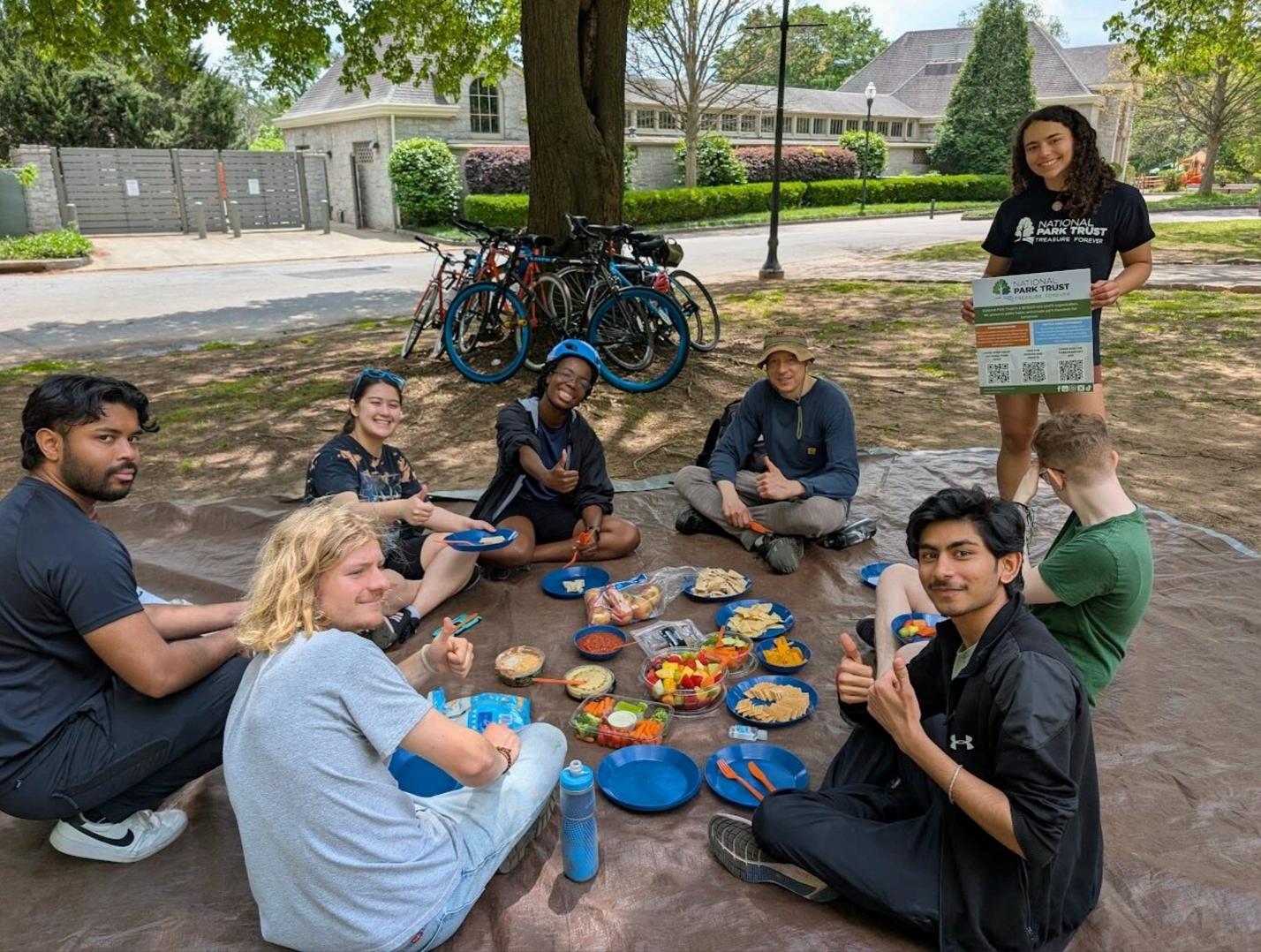
Amount awarded $2,812
Sustainable Outdoor Closet
The Sustainable Outdoor Closet provides cold weather gear to individuals who are attending one of Touch the Earth’s outdoor recreational trips.
There has been an increase in attendees who don’t own or have access to cold weather clothing, which is a barrier to some of the recreational trips. This year, 70 students checked out warm clothing for trips from the sustainability closet.
The grant funds were also used to purchase a new fleet of headlamps that utilize a rechargeable battery system. This helped eliminate the purchase of over 800 batteries.
Sustainable Development Goals
SDG 12: Responsible Consumption and Production.

WATER REFILL STATION
Erica Bracey
Panther Refill: Water for All, One Bottle at a Time, aimed to address a significant gap in hydration access on the ground floor of 58 Edgewood Avenue. Previously, the only drink option available was a soda vending machine. The project installed a water bottle refill station to promote sustainable practices, reduce plastic waste, and encourage healthier hydration habits among students, faculty, and staff.
Through this initiative, Georgia State students gained access to free, clean drinking water in a high-traffic area that serves 30–50 individuals daily. An estimated 1,800 bottles are projected to be diverted from landfills annually through this installation.
Construction on this project was in collaboration with Georgia State’s Facilities Renovations team.
Amount awarded: $13,374
Sustainable Development Goals
SDG 6: Clean Water and Sanitation
SDG 12: Responsible Consumption & Production
Identity & Placemaking
This refill station enhances the physical space at 58 Edgewood and reinforces Georgia State’s commitment to sustainability.
Student Success
This initiative enriches the learning environment for student entrepreneurs at LaunchGSU, who are often in the space and benefit directly from the project. The refill station ensures students can stay hydrated affordably, promoting their wellness.
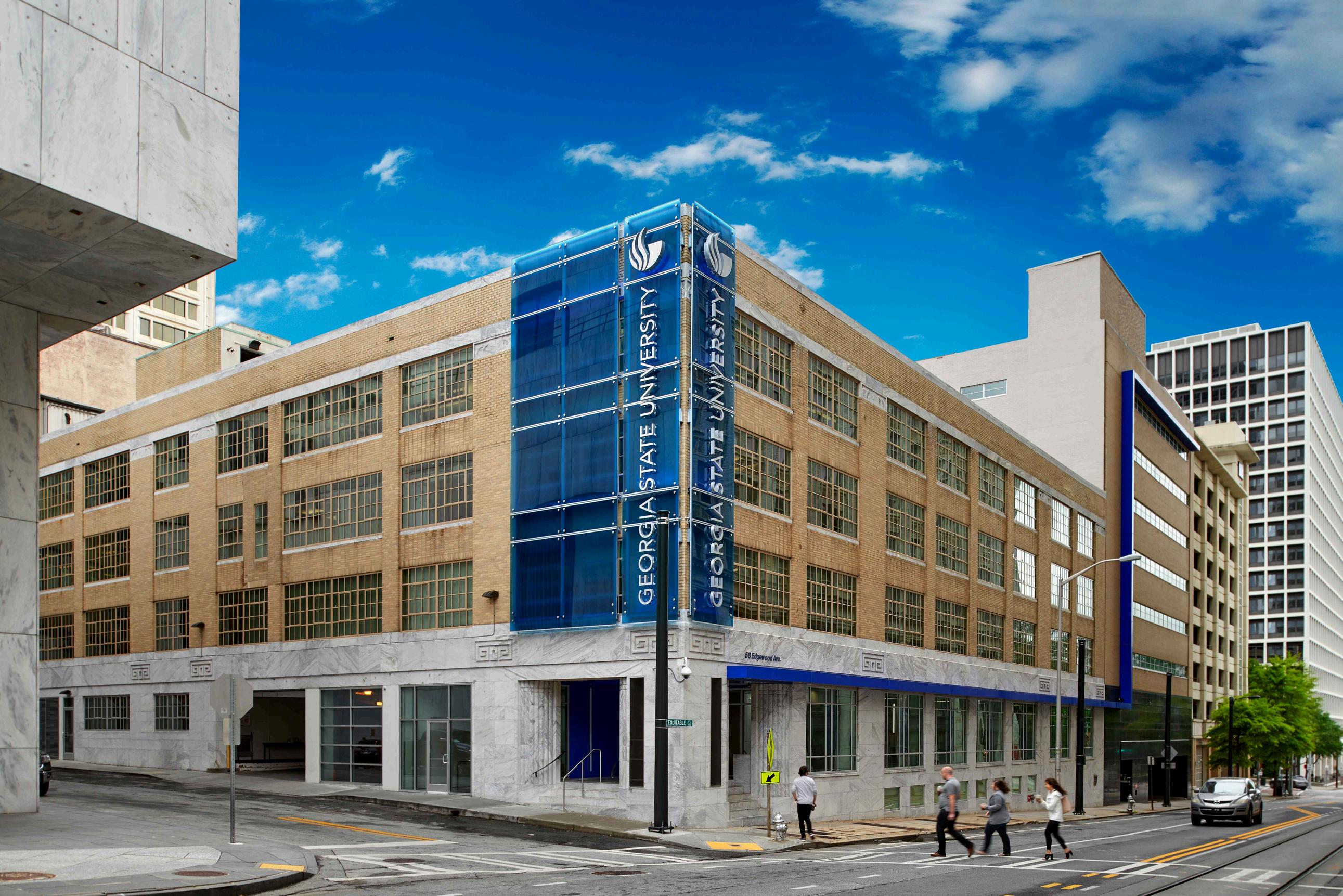

SUSTAINABILITY STAFF & INTERNS
Amount awarded: $85,000

Alicia Blount -Engagement Coordinator
Alicia started her work as an Engagement Coordinator in Spring 2023. Her role included overseeing social media and marketing interns, coordinating annual events such as the Green Move-In and Earth Week festivities, liaising with various organizations, and supporting the implementation of projects like the Campus Sustainability Grant Program and re:loom initiative.
Anaya Martin, Marketing & Social Media Intern, Summer 2024 -Fall 2025
Anaya’s work focused on creating video content for the sustainable Instagram and helping plan events hosted by Sustainability Initiatives. Anaya graduated in May 2025 with her second bachelor’s in film and media. As an intern, she said she was able to pursue her passion of filming and is “able to learn something new every day about sustainability.”
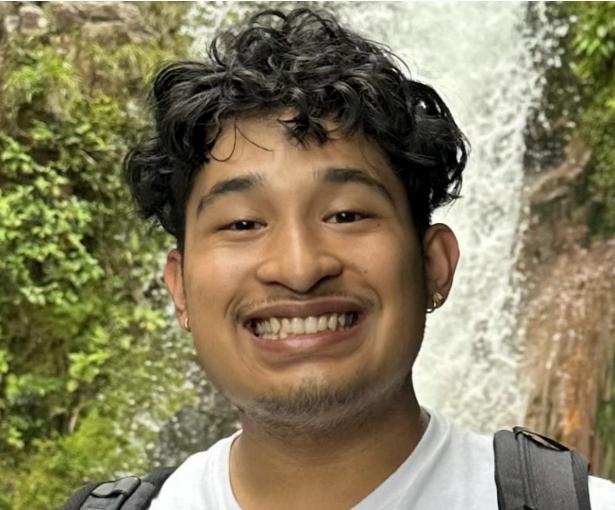
Aaron Pacheco -Bee Campus and GIS Intern, Fall 2024
Aaron started working for Sustainability Initiat
Campus USA intern. He helped GSU’s Decatur Campus achieve their Bee Campus USA certification and created a story and greenspaces across all of GSU’s campuses. He also helped co-host the 2024 Great Southeastern Pollinator Census event that took place on the Decatur Campus. After he created multiple maps of downtown Atlanta and the Atlanta campus, showing bike and alternate commuting routes.
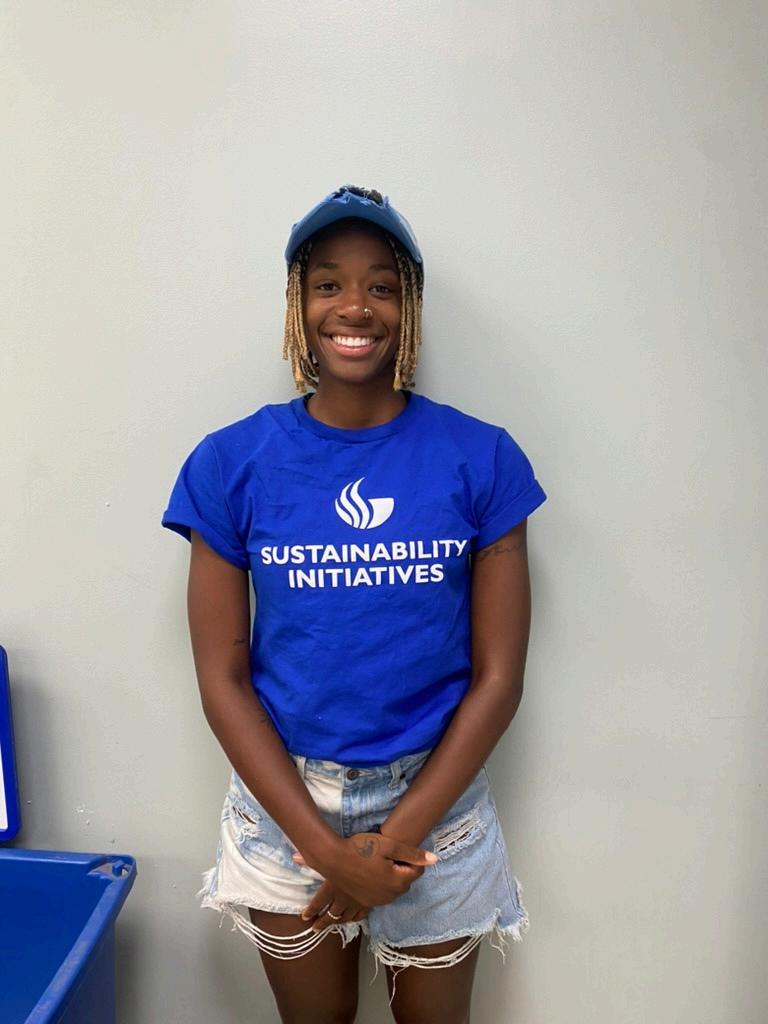
Chris Brissett - GIS Intern, Fall 2024
Chris worked on the Tree Campus team at the Clarkston campus. While working on the tree inventory, Chris measured trees for diameter, identified species, and tagged each tree with physical markers. Chris graduated with his associate’s degree in engineering.

SUSTAINABILITY STAFF & INTERNS
Amount awarded: $85,000
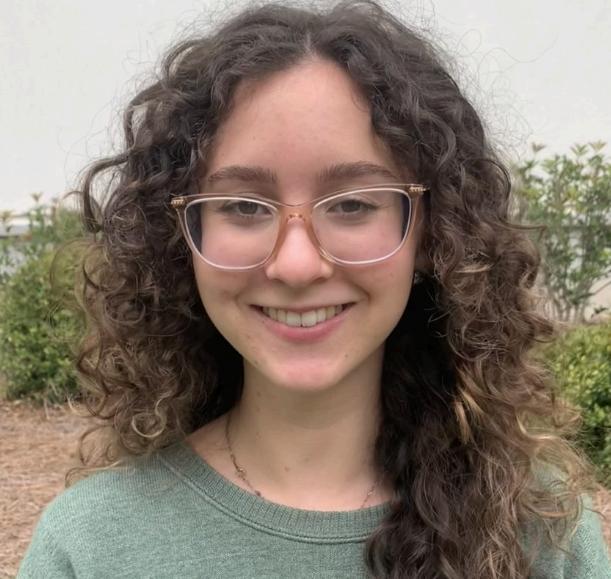
Erin Murphy, Food & Dining Intern, Fall 2024 -Spring 2025
Erin worked with Sarah Salazar on the Food & Dining team to find ways to reduce food waste at the dining halls. She helped bring Raccoon Eyes to the dining halls and helped analyze the data given from the tool. Erin and Sarah Salazar also helped write the NACUFS food and dining report that earned PantherDining the Gold award for Waste Reduction and the Grand Prize in sustainability. She graduated with her bachelor’s degree in business management in May 2025.
Julia Simonsen, Bee Campus Intern, Fall 2024 -Spring 2025
Julia started working for Sustainability Initiatives as a Bee Campus USA intern in Fall 2023. Along with Aaron Pacheco, she helped GSU’s Decatur Campus achieve their Bee Campus USA certification. She also co-hosted the 2024 Great Southeastern Pollinator Census event that took place on the Decatur Campus. After, Julia worked on the FY24 Greenhouse Gas Inventory. Julia graduated with her bachelor’s in Environmental Science in May 2025.


Katelyn
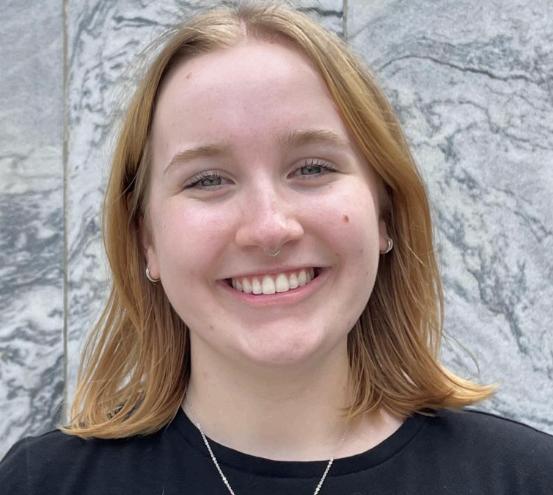
Trembley, Energy Analysis and Rebates Coordinator
Katelyn is working on developing more sustainable energy practices for facilities and GSU construction. She’s also creating a rebate process for energy-efficient projects. Katelyn graduated from GSU in 2024 with a BBA in Marketing and a Sustainability Certificate. She’s also a certified LEED Green Associate.
Loveday
Weimer-Johnson -Reporting Intern, Fall 2024
Loveday helped complete the STARS sustainability report, earning GSU silver rating for its university-wide sustainability practices. The Sustainability Tracking, Assessment & Rating System is a framework from allows colleges and universities to measure their sustainability She also helped with tabling, asking students about initiatives they would like to see on campus. Loveday environmental science.

SUSTAINABILITY STAFF & INTERNS CONT
Amount awarded: $85,000

Lucero Mendes -PantherSWAP Intern, Fall 2024
Lucero founded PantherSWAP, GSU’s free thrift pop-up on campus, in Spring 2024. She is a rising senior majoring in Public Policy with a minor in Urban Studies. When asked about the sustainability internship, Lucero said she loves “the people I get to meet and bringing other students joy.”
Maddie Briscoe, Engagement Coordinator
Maddie started working for Sustainability Initiatives in Spring 2024 as a social media and marketing intern. As an intern, she created media content for the sustainable Instagram. She coordinated and co-coordinated various events, such as Creepy Crafts, Goat Yoga, and the Green Gala. She also worked tabling events to educate students on the sustainability initiatives at GSU. In May 2025, she graduated with her bachelor’s in journalism. After, she joined the Sustainability Initiatives team as the engagement coordinator.
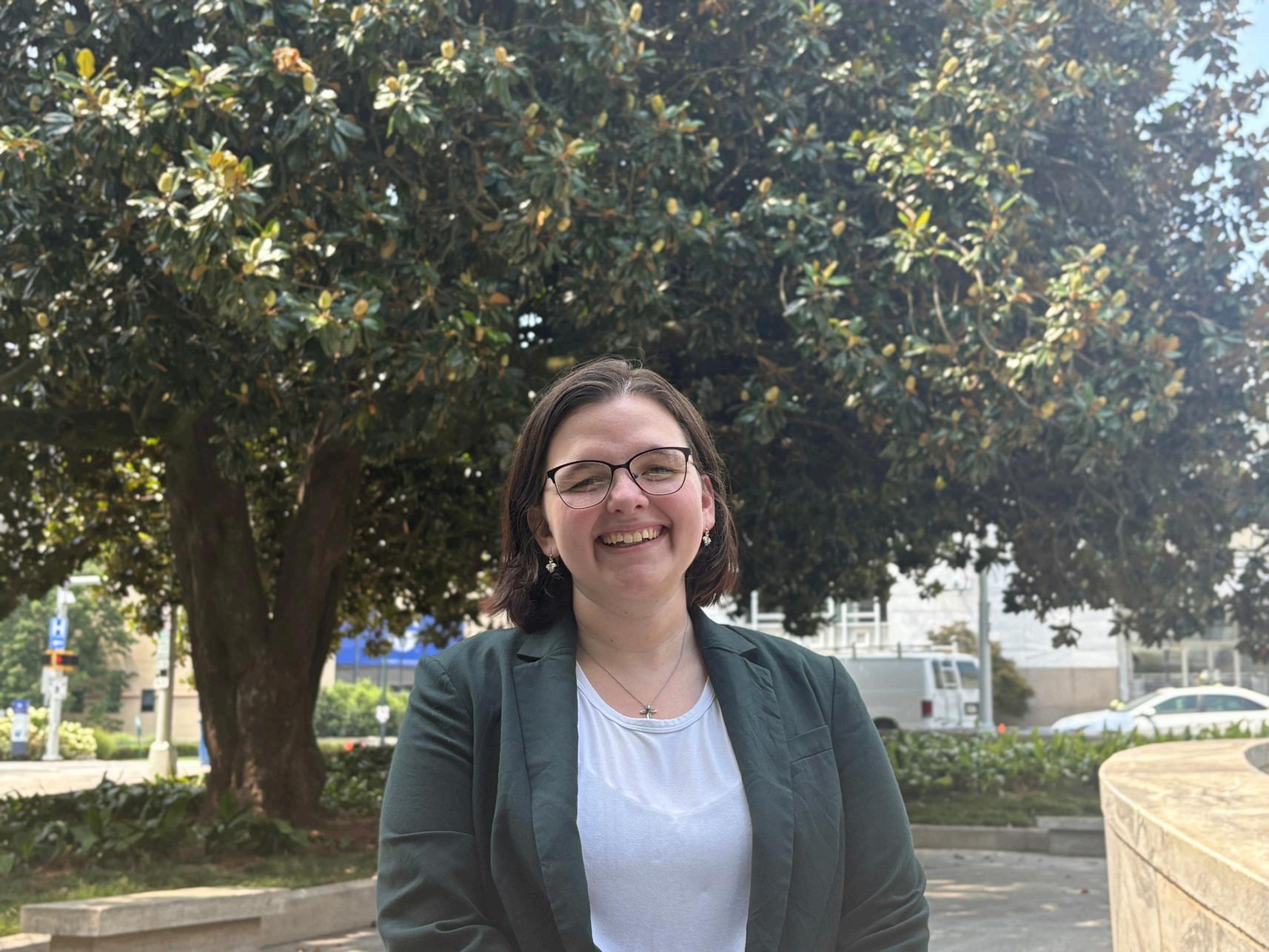
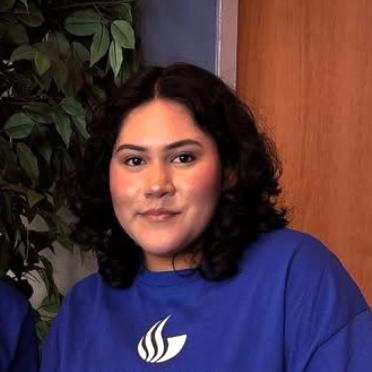
Monserrat Hernandez -Reporting Intern, Fall 2024 -Spring 2025
Monserrat worked on the Sustainability Reporting team with Loveday. She helped build GSU’s STARS report that earned GSU a silver rating for its university-wide sustainability practices. She was also part of the Sustainability Fellowship’s Program Fall 2024 Cohort. In May 2025, Monserrat graduated with her bachelor’s in Geosciences.
Olivia Sanford, Tree Campus Intern, Summer 2024 -Summer 2025
Olivia started working for Sustainability Initiatives in the Summer of 2024 to help inventory the trees on GSU’s Clarkston Campus. After, Olivia went through docent training and developed a tree tour for GSU’s Clarkston and Atlanta Campuses. Olivia is a senior majoring in geosciences with a concentration in geology. She said as an intern, she can do the things she loves the most, “be outside and geek about trees.”

SUSTAINABILITY STAFF & INTERNS CONT

Amount awarded: $85,000
Rahul Kadam, Energy Intern, Fall 2024
Rahul worked on the Energy Team as an Energy Analyst in Fall 2024. During the semester, he used an electricity monitor to measure the electricity consumption of different appliances and devices in the office.
Sarah Anderson -PantherSWAP Intern, Fall 2024 -Spring 2025
Sarah started working for Sustainability Initiatives in Fall 2024 as a PantherSWAP intern. She worked with Lucero Mendez to coordinate PantherSWAP events, form partnerships with various student clubs and organizations, and create social media content on PantherSWAp’s Instagram.
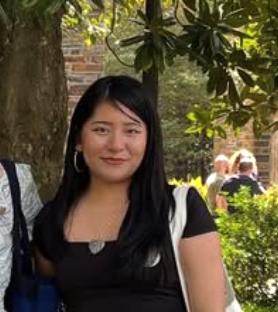
Sarah Salazar -Food & Dining Intern, Fall 2024 -Spring 2025
Sarah worked with Erin Murphy on Raccoon Eyes and helped conduct food waste minimization experiments in the dining halls. In Spring 2024, Sarah presented research with Erin Murphy at GSURC and hosted “See the Waste” events at the dining halls to showcase to students the amount of food wasted during lunch rush. Sarah and Erin Murphy also wrote the NACUFS report that helped PantherDining win a Gold Award in Waste Reduction and the Grant Prize in Sustainability.
Sean Max, Project Coordinator
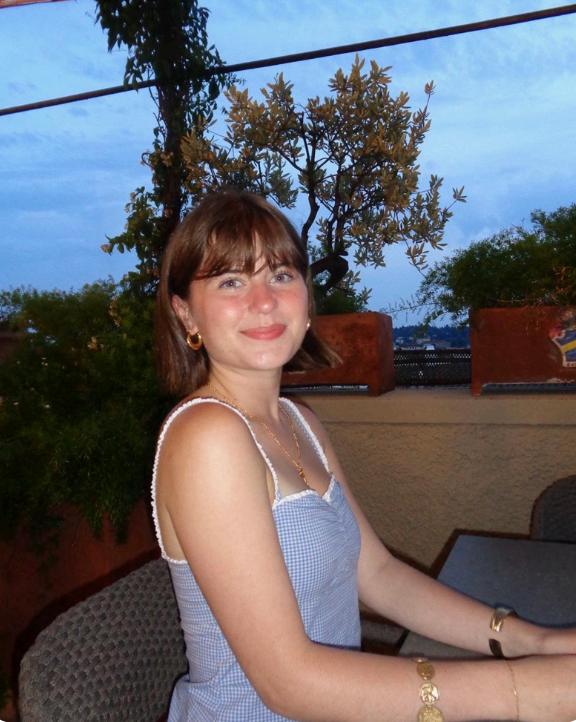
Sean first joined Sustainability Initiatives in Spring 2024 as a Tree Campus Intern. After graduating in May 2025, Sean worked as the Tree Campus Lead for a year, helping GSU’s Clarkston Campus achieve its Tree Campus Higher Education Certification. Now, they work as the project coordinator managing bee campus, tree campus, and alternate commuting projects.
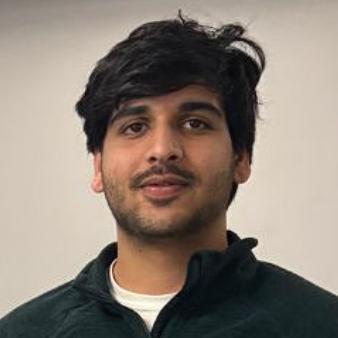
Shabib Gazi, Energy Intern, Fall 2024

Shabib worked on the Energy Team as an Energy Analyst. During the semester, he created an energy dashboard for the GSU parking decks and worked on inputting GSU buildings into the Energy Star Portfolio Manager.
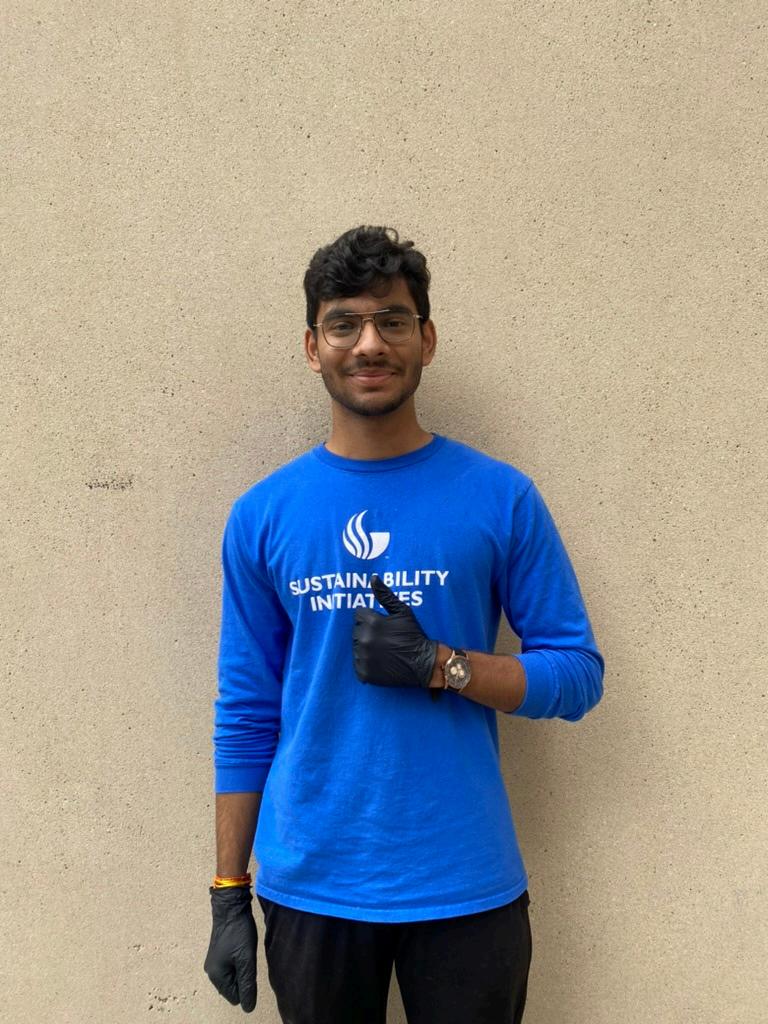
RECYCLING INTERNS
Amount awarded: $85,000
Aditya Sule, Recycling Ambassador, Summer 2024 -Spring 2025
Aditya started his recycling internship in Spring 2024. Aditya collects, sorts, and prepares recyclable materials from university buildings for the various recycling vendors.
Brij Chovatiya -Recycling Ambassador, Summer 2024 -Spring 2025
Brij joined the recycling team in the summer of 2024. He works at the recycling center at Center Parc Stadium, preparing recyclable materials to be taken to our various vendors. He attended the tour at CHaRM, learning more about hard to recyclable materials.

Clinton Brennen II, Recycling Ambassador, Fall 2024 -Spring 2025
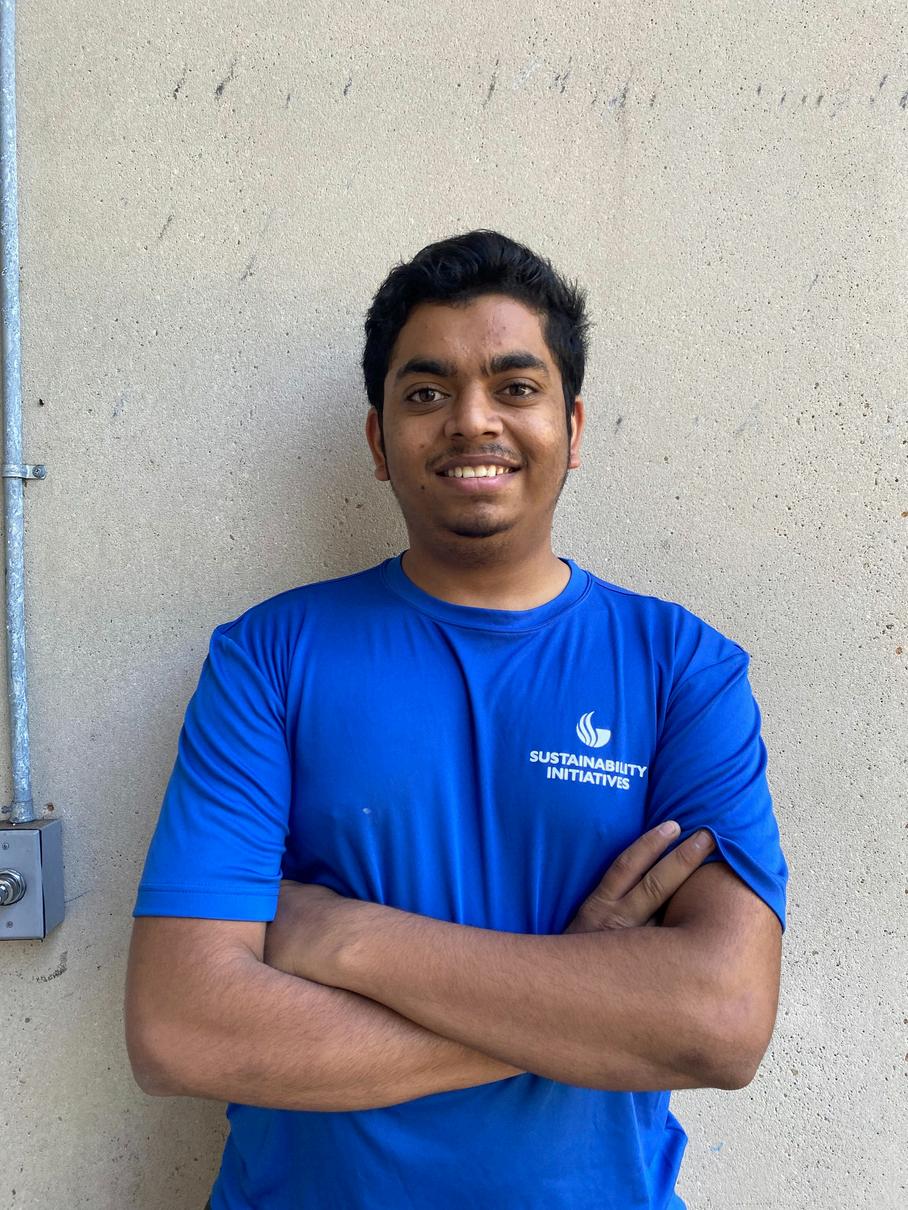
Clinton built centralized waste stations and landfill bins to be distributed throughout the buildings on GSU’s campus. He worked at tabling events to educate students on different sustainability initiatives at GSU. He also created a sustainability rap song that he performed at the 2024 Green Gala. Clinton said working at the sustainability office has taught him the importance of incorporating sustainable practices in his life.
Jasmine Hall -Recycling Ambassador, Summer 2024 -Spring 2025
Jasmine is one of the members of the Recycling Team. She works at the Recycling Center at Center Parc Stadium, preparing recyclable materials to be taken to our various vendors.
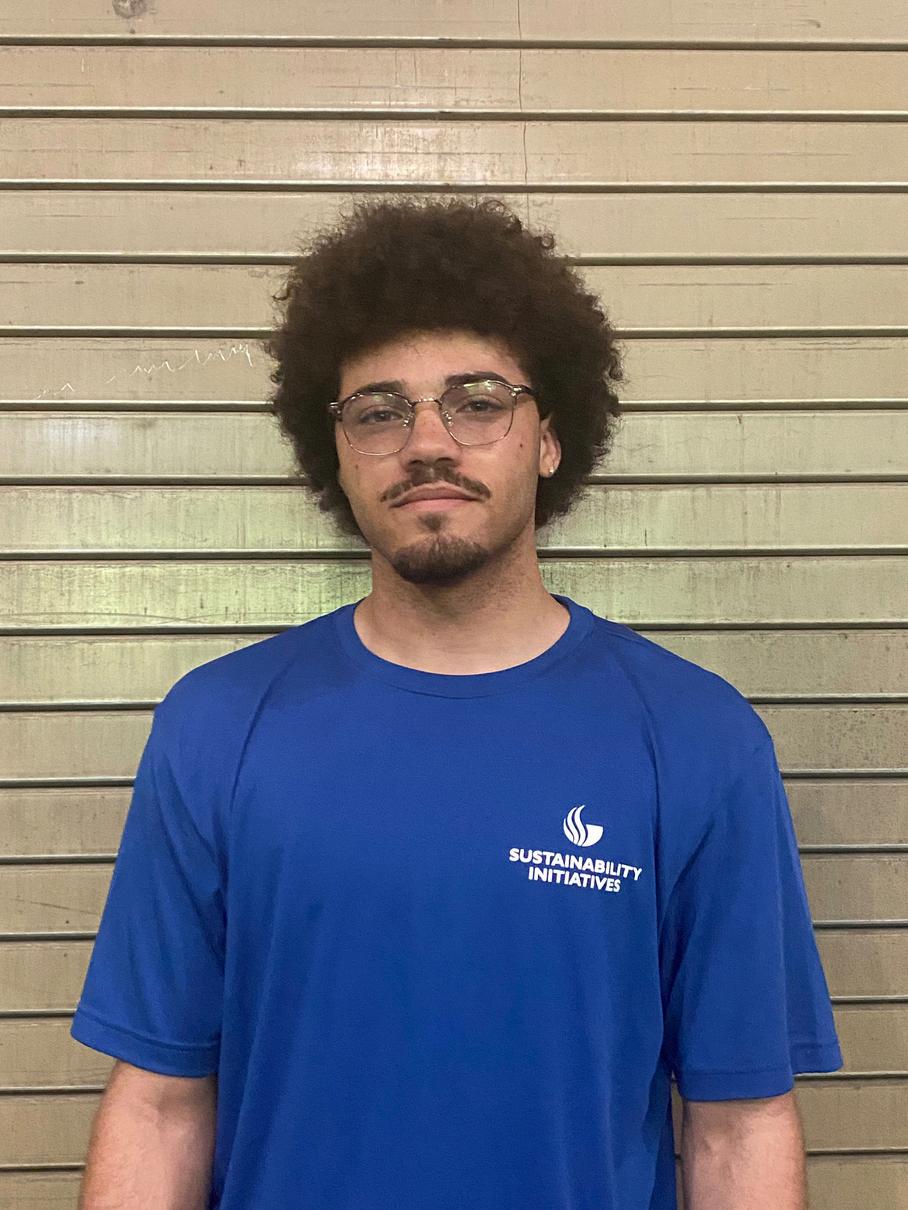
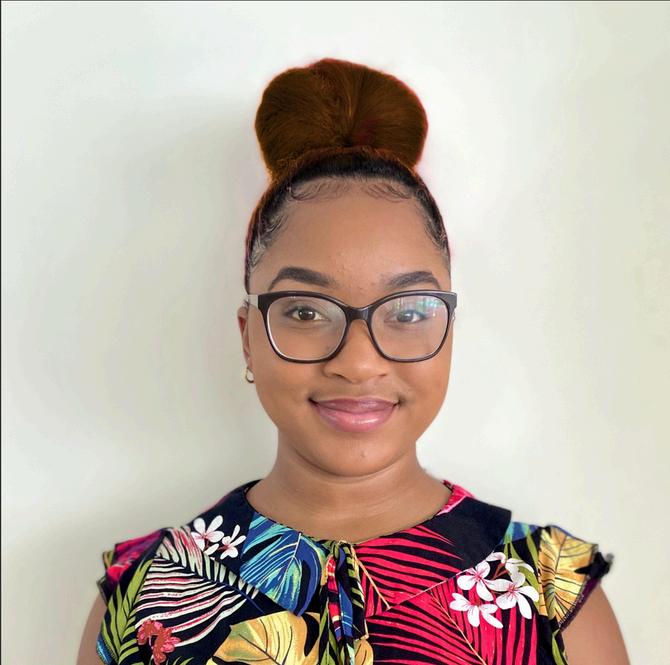
Tyler Sawyer, Recycling Ambassador, Fall 2024 -Spring 2025
Tyler is one of the members of the recycling team. He collects recyclable materials from buildings on GSU’s campus and works at the Recycling Center at Center Parc stadium to prepare the materials to be taken to the various recyclable materials.
